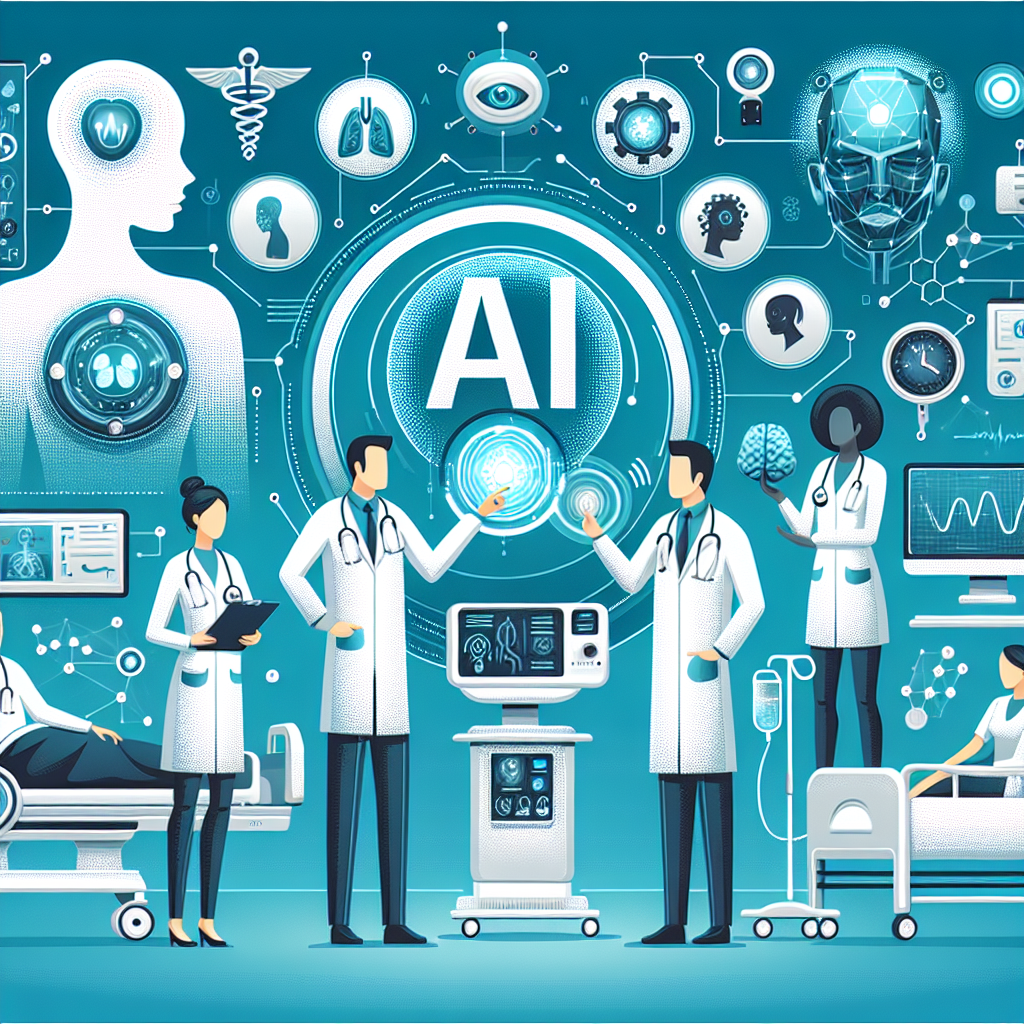Artificial Intelligence (AI) has been revolutionizing various industries, and healthcare is no exception. The use of AI in healthcare has the potential to greatly improve access to healthcare services for individuals around the world. From improving diagnostic accuracy to streamlining administrative processes, AI is changing the way healthcare is delivered and accessed. In this article, we will explore the role of AI in improving healthcare access and its impact on patients and healthcare providers.
AI in Healthcare
AI refers to the simulation of human intelligence in machines that are programmed to think and learn like humans. In healthcare, AI is used to perform tasks that typically require human intelligence, such as diagnosing diseases, interpreting medical images, and analyzing patient data. AI can also be used to streamline administrative processes, improve patient engagement, and enhance the overall quality of care.
One of the key benefits of AI in healthcare is its ability to improve diagnostic accuracy. AI algorithms can analyze vast amounts of patient data, such as medical images, lab results, and genetic information, to help doctors make more accurate diagnoses. This can lead to earlier detection of diseases, better treatment outcomes, and ultimately, improved patient outcomes.
Another important role of AI in healthcare is in personalized medicine. AI algorithms can analyze a patient’s unique genetic makeup, medical history, and lifestyle factors to develop personalized treatment plans. This can help healthcare providers deliver more targeted and effective care to their patients, leading to better outcomes and reduced healthcare costs.
AI can also help improve access to healthcare services for individuals in remote or underserved areas. Telemedicine, which is the use of technology to provide remote healthcare services, has become increasingly popular in recent years. AI can be used to enhance telemedicine services by providing real-time diagnostic support, remote monitoring of patients, and virtual consultations with healthcare providers. This can help individuals in remote areas access healthcare services that they may not have otherwise been able to receive.
Furthermore, AI can help streamline administrative processes in healthcare, such as scheduling appointments, billing, and managing electronic health records. By automating these tasks, healthcare providers can focus more on patient care and reduce the burden of administrative work. This can lead to improved efficiency, reduced costs, and better overall patient experiences.
Overall, the role of AI in healthcare is to improve access to healthcare services, enhance diagnostic accuracy, personalize treatment plans, and streamline administrative processes. By leveraging the power of AI, healthcare providers can deliver more efficient, effective, and accessible care to their patients.
FAQs
Q: How is AI used in healthcare?
A: AI is used in healthcare to perform tasks that typically require human intelligence, such as diagnosing diseases, interpreting medical images, and analyzing patient data. AI algorithms can analyze vast amounts of patient data to help doctors make more accurate diagnoses and develop personalized treatment plans.
Q: How can AI improve access to healthcare services?
A: AI can improve access to healthcare services by enhancing telemedicine services, providing real-time diagnostic support, remote monitoring of patients, and virtual consultations with healthcare providers. This can help individuals in remote or underserved areas access healthcare services that they may not have otherwise been able to receive.
Q: What are the benefits of using AI in healthcare?
A: The benefits of using AI in healthcare include improved diagnostic accuracy, personalized treatment plans, streamlined administrative processes, and enhanced access to healthcare services. AI can help healthcare providers deliver more efficient, effective, and accessible care to their patients.
Q: Is AI in healthcare safe and secure?
A: Healthcare providers must ensure that AI systems used in healthcare are safe, secure, and compliant with privacy regulations. Data security measures must be in place to protect patient information and ensure that AI algorithms are accurate and reliable.
Q: How can healthcare providers implement AI in their practices?
A: Healthcare providers can implement AI in their practices by partnering with technology companies that specialize in healthcare AI solutions, investing in AI training for their staff, and integrating AI tools into their existing systems. By leveraging the power of AI, healthcare providers can improve access to healthcare services, enhance patient outcomes, and streamline administrative processes.

